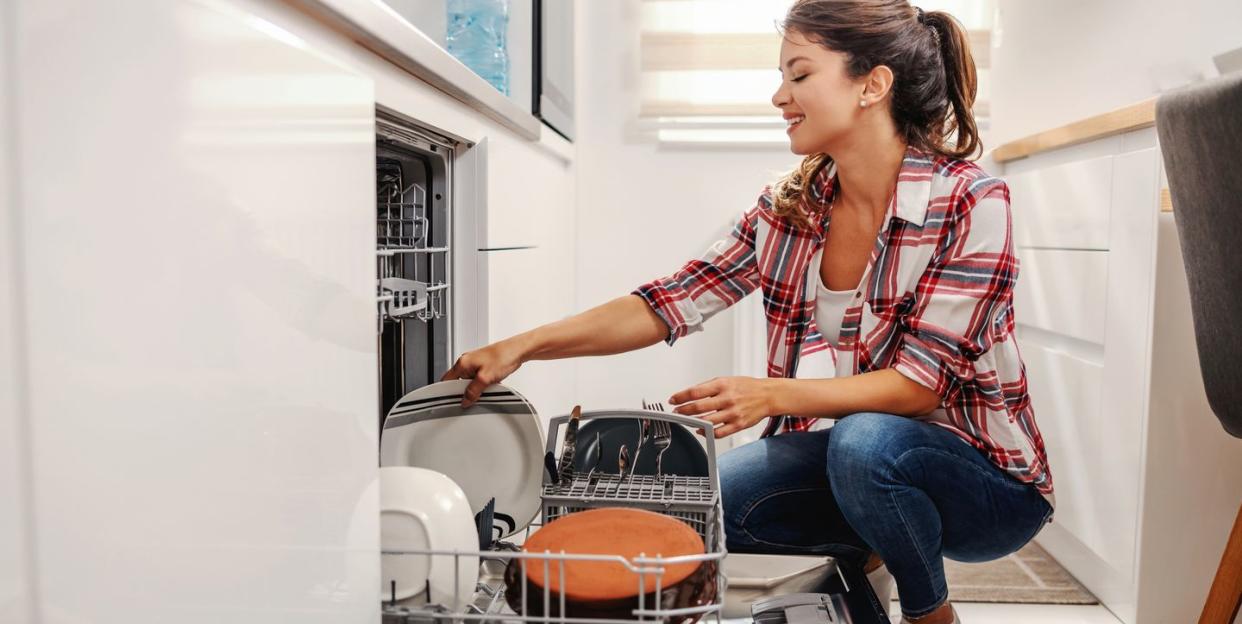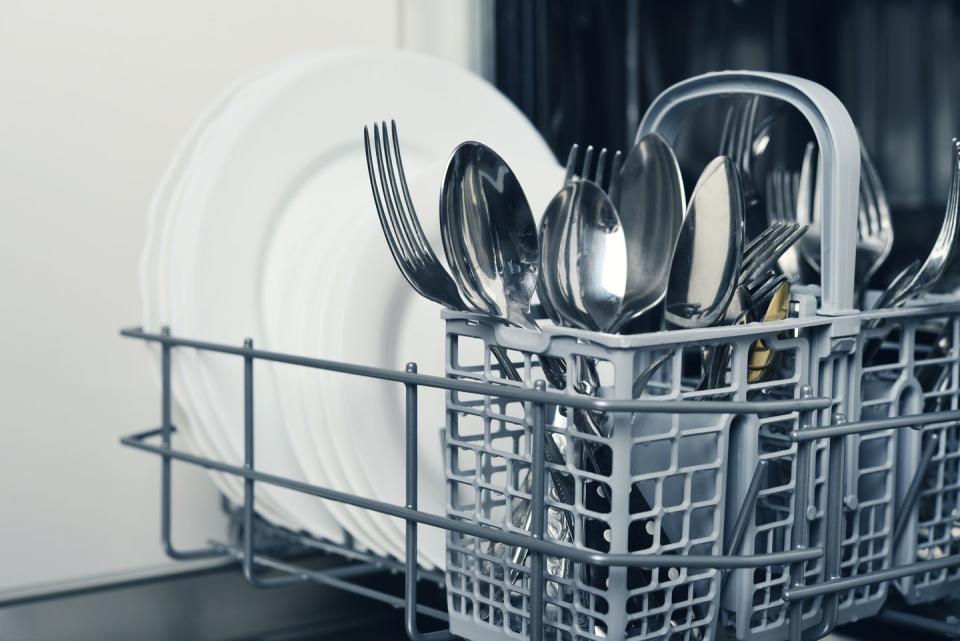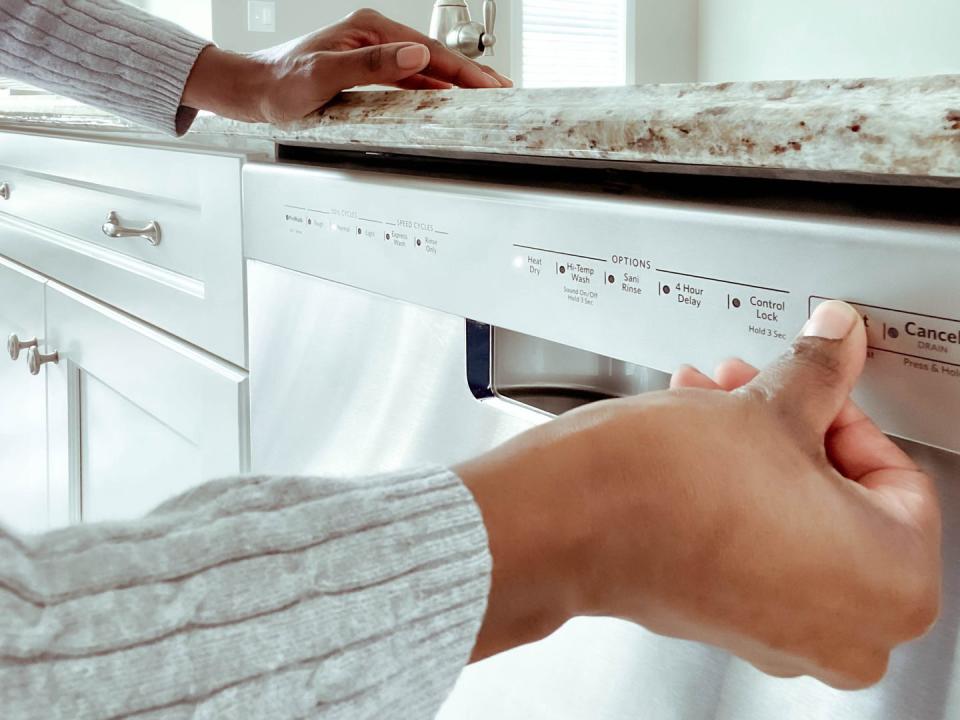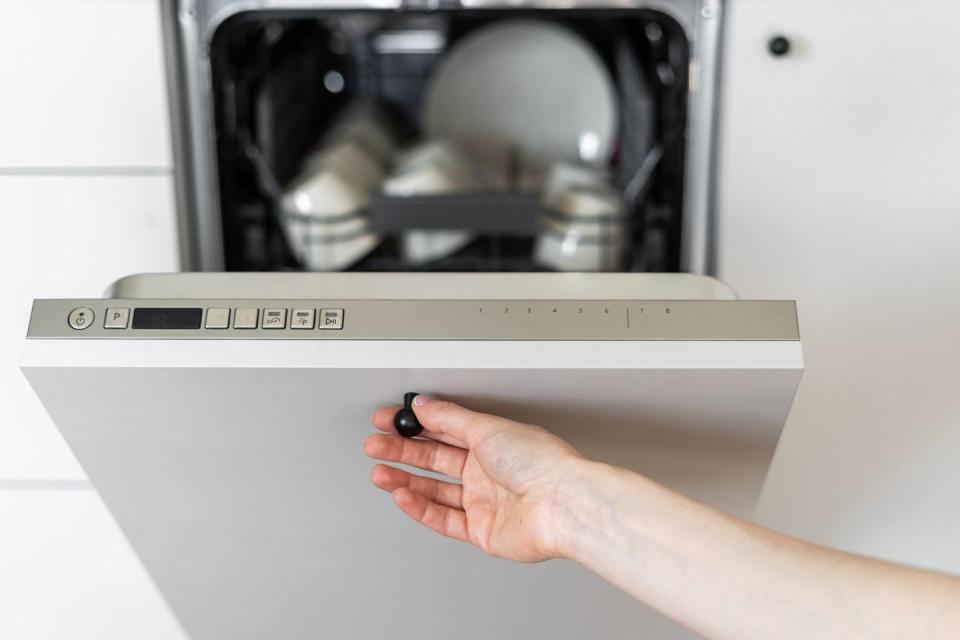8 ways to stop your cutlery rusting in the dishwasher

Love Good Housekeeping and want more of our Triple-Tested recipes, home tips, fashion inspiration, essential consumer advice and so much more delivered to your inbox? Sign up to our FREE weekly newsletters, sit back and enjoy!
Dishwashers are fantastic appliances, but they don’t always produce spotless results. There’s all sorts of rules to follow to get the best performance from your machine, from loading it correctly, to taking the time to deep-clean it. Even then issues can still occur; a common one being rusty cutlery.
Rust can easily form on metal items in the dishwasher - it’s not surprising when you consider the levels of humidity involved. And it's not just cutlery; rust can affect pan handles, and metal utensils.
Luckily, there are ways you can prevent rust from forming on metal cutlery and utensils in the dishwasher – we’ve listed 8 of them here.
1. Stick to good quality stainless steel cutlery
Our first piece of advice is to stick to using good quality stainless steel, dishwasher-safe cutlery. This metal type is less susceptible to corrosion and so less likely to rust.
A core component of stainless steel is chromium. This reacts with oxygen in the atmosphere to create an oxide layer which protects its surface from corrosion. This coating can even repair itself when it suffers light damage. Having said that, stainless steel is by no means immune to rust. As you have likely seen, rust can still take hold once this layer is penetrated or pitted.
Most cutlery is made from stainless steel, but make sure the quality is there (look for a rating of 18/10 which is a good indicator of quality). At the same time, we recommend keeping metal items which aren’t dishwasher-safe out of the appliance as these will likely corrode faster.

2. Hand wash kitchen knives
Even if your kitchen knives specify that they are dishwasher-safe, we don't recommend washing them this way. While they might be forged from stainless steel, like your cutlery, the steel needs to be much harder for the blade to maintain its sharpness, and that means it’s not as resistant to corrosion. That’s why rusty kitchen knives are a frequent occurrence in the dishwasher.
Knives aren’t good news for your dishwasher either. They can cut into the coating on your racks and leave them vulnerable to rust too. Stick to carefully washing by hand instead.
3. Rinse away acidic and salty food deposits
Salty and acidic foods left on your cutlery will contribute to corrosion. That’s because they eat away at the protective oxide layer mentioned earlier and leave the surface vulnerable. So it's best not to leave such residue sitting on your cutlery until your machine's next cycle. Rinse this residue away first before loading in the dishwasher.
Residues to look out for include tomato-based foods, mayonnaise, lemon and vinegar.

4. Do not use the rinse and hold cycle
Rust occurs where metal surfaces are exposed to oxygen and water for an extended time; it’s a chemical reaction which is difficult to avoid in a dishwasher, especially with the addition of dishwasher salt. However, you’re not helping things by using the rinse and hold cycle, aka prewash.
While you might think you’re just removing those acidic foods mentioned above, it’s exposing your cutlery to salty water in the rinse cycle for an unnecessarily long time, then leaving them to sit in a humid atmosphere. That’s a recipe for pitting and rust. It’s also a waste of water in retrospect if you’re just targeting your cutlery.
If you’re worried about getting your dishes properly clean, dishwashers are advanced enough to remove all residual foods in one cycle, so you don’t need this additional cycle.
Stick to running the main cycle once your dishwasher is full, rinsing cutlery first as mentioned above by tap if needed.
The prewash is actually one of the settings we recommend you avoid using altogether.
5. Do not leave salt on the floor of the dishwasher
Salt and salty water contribute to corrosion, so it's best not to leave excess dishwasher salt sitting on the floor of the appliance.
Make sure you use your supplied funnel to fill the dishwasher salt reservoir when a top up is needed. Should any spill, run an empty rinse cycle to wash this away immediately, and check that the cap is tightened after doing so. This can become loosened if salt gets trapped in the seal and then dissolves.
Make sure you top up the dishwasher salt as and when needed. While this is corrosive to metals, it’s necessary to soften the water and improve the performance of the detergent.

6. Do not put rusty items in the dishwasher
While you might think rusty items should go straight back into the dishwasher for another cycle, definitely don't do this! Rust will actually spread to other metal items in the dishwasher, so you could be making things more difficult for yourself.
Inspect each item as you empty your dishwasher, and if you spot those dreaded brown specks, separate the item out for cleaning by hand. A microfibre cloth soaked in vinegar can help to remove any corrosion. Be sure to rinse and dry thoroughly afterwards to remove any acidic traces. Once it’s free of rust, it’s safe to go back in the dishwasher, but maybe hand wash in the future if rust is a frequent occurrence.
7. Open the door
Most dishwashers now feature an automatic door-opening phase at the end of the cycle. This is handy for drying the load more promptly and is useful for discouraging rust. For this reason, if your dishwasher doesn’t have this feature, be sure to open it up manually as soon as it’s finished to vent the humidity.
It's good practice to remove and dry metal items as soon as the cycle is finished. Non-metal items can air dry naturally.

8. Set the water hardness level
It might be tempting to skip programming the water hardness setting on your dishwasher (or you might not even know you could!), but it is important. The default setting may be too hard or too soft for your area, which means the load is getting too much or too little dishwasher salt each cycle.
Having the wrong setting could impact the lifespan of the machine as well as encourage rust, so be sure to set this properly. You will be prompted on first installation, but otherwise your manual can guide you on how to access this. If you’re unsure on your local water hardness, this map can help.
You Might Also Like


